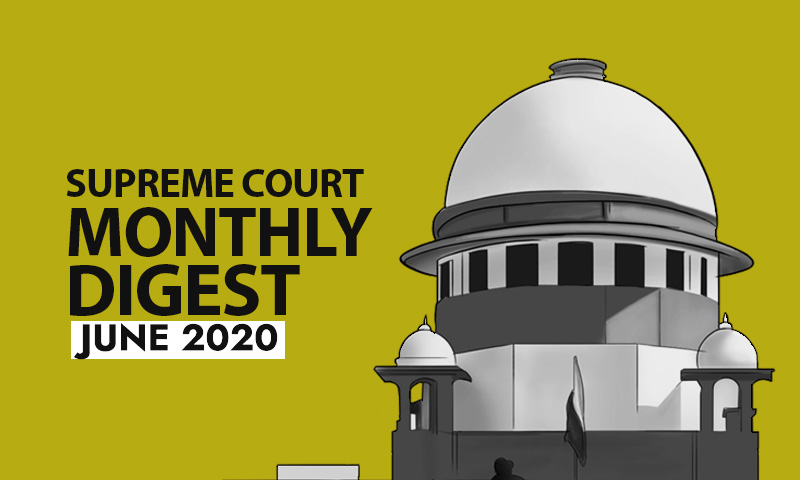- Home
- /
- Top Stories
- /
- Supreme Court Monthly Digest: June...
Supreme Court Monthly Digest: June 2020
Akshita Saxena
19 Aug 2020 10:43 AM IST
1. Electricity Dues, Where They Are Statutory In Character Under Electricity Act, Cannot Partake The Character Of Dues Of Purely Contractual Nature: SC Oder dated June 1, 2020 The Supreme Court clarified that electricity dues, where they are statutory in character under the Electricity Act and as per the terms & conditions of supply, cannot be waived in view of the provisions...
Next Story



